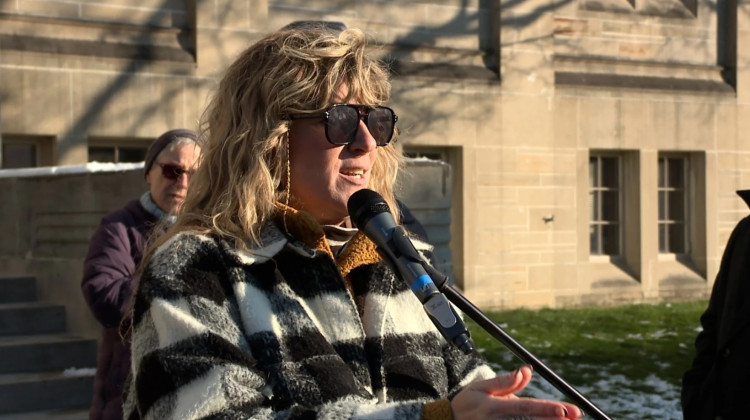Saturday marks the 60th anniversary of the decision of Brown v. Board of Education. The ruling made it unconstitutional for states to segregate schools.
Friday, an event at Marian University debated the impact of the decision.
Six panelists debated whether or not Brown v. Board of Education has accomplished what it set out to do, end segregation in schools.
Three were on the side of the affirmative and argued that the country is better off because of the decision. The others say while well intentioned, the ruling fell short of making a significant difference.
Religious subcommittee chair Angelique Walker Smith, who served as one of the moderators, calls Brown v. Board critically important to the country’s narrative.
"We haven't come as far as we need to go, but, we've come a long way," she said. "If it hadn't been for Brown v. the Board of Education, I really would be very concerned about where we would be right now. I don't know that I could have even been in this room with the comfort that I am even before it was fully implemented into the '70s and '80s which was the period in which I grew up."
The event was hosted by the Central Indiana Education Alliance as part of its Education Weekend which starts today.
Andy Hohman thinks there have been only moderate gains in progress.
Hohman acted as the debate judge and is the chair of the Theology and Philosophy Department at Marian.
He says while the Brown v. Board decision inspired changes 60 years ago, there are modern segregation challenges that now need to be addressed.
"As is always the case, I think with education, it gets caught up with social questions," he said. "It's hard to separate out how to solve the education piece without the social piece, without the economic piece, without religious pieces, and so on."
And with a new set of issues, Marian Dean of Education, Diana Cheshire, says that’s why it’s important to have events like the one Friday.
She thinks it reopens the conversation and encourages new perspectives on what kinds of solutions are necessary.
"I think we are making great strides in our efforts with Brown v. the Board of Education and diversity and bringing equity to our schools, but I still think we have a ways to go," she said. "We believe all students can learn. In our school of education we teach that all students can learn, but I think bringing in the community and government agencies and everyone else that were here today, it's a wonderful opportunity to come together, and move forward as a group and continue the discussion."
In 1968, 14 years after the Brown v. Board decision, the U.S. Justice Department filed suit against Indianapolis Public Schools to force desegregation.
Three years later, the district was found guilty of operating a segregated school system.
 DONATE
DONATE






 View More Articles
View More Articles


 Support WFYI. We can't do it without you.
Support WFYI. We can't do it without you.